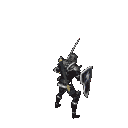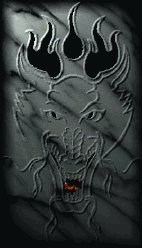|
|
 |
|
DECEPTION... 

|
 |
|


The 36 Stratagems are ancient Chinese military tactics for triumph and survival. These strategies describe not only battlefield
strategies, but also tactics used in psychological warfare to undermine the enemy. The origins of these strategies are unknown,
and no author or date has ever been ascertained. Today, many Chinese continue to turn to these maxims in their personal and
business decisions.
"War doesn't determine who is right,
war determines who is left".
|
|
|
Approximately 300 years ago, either
towards the end of the Ming or the beginning of the Qing Dynasties of China, a scholar compiled 36 military stratagems titled
the Secret Art of War (different from Sun Tzu's "Art of War". It is divided into six sections with six stratagems in each
section :
- Stratagems when in a superior position.
- Stratagems for Confrontation
- Stratagems for attack
- Stratagems for confused situations
- Stratagems for gaining ground
- Stratagems Desperate situation
|
| |
|
| |
|

Stratagems when in a superior position
1. Sneak across the ocean in broad daylight (Cross
the sea under camouflage)
 
This means to create a front that
eventually becomes imbued with an atmosphere or impression of familiarity, within which the strategist may maneuver unseen
while all eyes are trained to see obvious familiarities.
2. Surround one state to save another.
(Besiege Wei to rescue Zhao)
 
When a strong group is about to
take over a weaker group, a third part can "have its cake and eat it too," gaining a good reputation by attacking the aggressor
in apparent behalf of the defender, and also eventually absorb the weakened defender to boot, without incurring the same opprobrium
that would be leveled at outright aggression.
3. Borrow a sword to attack another.
 
When one side in a conflict is
weakening, it may draw its own friends into battle, thus delivering a blow to its enemy while conserving its own strength.
4. Face the weary in a condition of ease. (Wait
at ease for the fatigued enemy)
 
You force others to expend energy while you
preserve yours. You tire opponents out by sending them on wild goose chases, or by making them come to you from far away while
you stand your ground.
5. Plunge into a fire to pull off a
robbery. (Loot the burning house)
 
You use others' troubles as opportunities to
gain so
mething for yourself.
6. Feint east, strike west.
 
You spread misleading information
about your intentions, or make false suggestions, in order to induce the opponent to concentrate his defenses on one front
and thereby leave another front vulnerable to attack. |
|

| |
| |
|
Stratagems for confrontation
7. Make something from nothing.
 
You create a false idea in the
mind of the opponent, and fix it in his mind as a reality. In particular, this means that you convey the impression that you
have what you do not, to the end that you may appear formidable and thus actually obtain a security that you had not enjoyed
before.
8. Cross the pass in the dark. (Advance to Chencang
by a hidden path)
 
You set up a false front, then penetrate the
opponent's territory on other fronts while they are distracted by your false front.
9. Watch the fire from the opposite bank of the
river.
 
You calmly look on when adversaries experience
internal troubles, waiting for them to destroy themselves.
10. Hide a sword in a smile
 
You ingratiate yourself with enemies, inducing
them to trust you. When you have their confidence, you can move against them in secret.
l 1. One tree falls for another (Sacrifice a plum
for a peach)

Individual sacrifices may have to made to achieve
a greater goal.
12. Take the sheep in hand as you go along. (Lead
away a goat in passing)

You take advantage of any opportunity,
however small, and avail yourself of any profit, however slight. This comes from the story of a destitute traveler walking
on a road. As he went along, he came across a flock of sheep; making his way through them, when he emerged from their midst
he had a sheep with him. He behaved so calmly and naturally, as it he had been leading his own sheep to market all along,
that the shepherd never noticed him.
|
|

| |
| |
|

Stratagems for attack
13. Beat the grass to startle the snakes.

When opponents are reserved and
unfathomable, you create some sort of stir to see how they will react. Yagyfi mentions this, and also notes that it is used
in Zen. Certain Zen sayings and stories are used primarily to test people and find out what they are like.
14. Borrow a corpse to bring back a spirit (Raise
a corpse from the dead)
 
You don't use what everyone else
is using, but use what others aren't using. This can mean reviving something that has dropped out of use through neglect,
or finding uses for things that had hitherto been ignored or considered useless.
15. Train a tiger to leave the mountains (Lure
the tiger from the mountain)

You don't go into the fastness
of powerful opponents' territory, but induce them to come out of their stronghold.
16. Let the
enemy off in order to snare him
 |
Let the enemy off in order to snare him |
When you want to take captives, leave them on
the loose for a while. (Let the enemy off so to snare them) Fleeing enemies may turn again and strike desperately if pursued
too hotly. If they are given room to run, on the other hand, they scatter and lose their energy. Then they can be taken captive
without further violence.
17. Toss out a glazed tile to draw a jade. (Cast
a brick to attract a gem)

You present something of superficial
or apparent worth to induce another party to produce something of real worth.
18. To capture the brigands (rebels), capture their
king.

When confronted with a massive
opposition, you take aim at its central leadership.
|
| | |
| |
|
Stratagems for confused situations
19. Take the firewood out from under the pot.

When you cannot handle an adversary
in a head-on confrontation, you can still win by undermining the enemy's resources and morale.
20. Stir up the waters to catch fish (Fish in troubled
waters)

You use confusion to your advantage, to take what you want. It may specifically mean taking
advantage of a general or particular loss of direction in order to gather followers from among the uncommitted or disenfranchised.
21. The gold cicada molts its shell.

This means leaving behind false appearances
created for strategic purposes. Like the cicada shell, the facade remains intact, but the real action is now elsewhere.
22. Lock the gates to catch the bandits. (Bolt
the door to catch the thief)
 
You catch invading predators by
not letting them get away. You don't let them get back to their homelands with what they can get from you. If they escape,
you don't chase them, because you will thereby fall prey to the enemy's plot to wear you down.
23. Make allies at a distance, attack nearby.

When you are more vulnerable to
those close by than you are to those far away, you can defend yourself by keeping those around you off balance, in the meantime
cutting of their field of maneuver by securing a broader ring of alliances surrounding them.
24. Borrow the right of way to attack the neighbor.
(Borrow a route to conquer Guo)
 
You secure the temporary use of
another party's facilities in order to move against a mutual enemy. After having used these facilities to prevail over the
enemy, you then turn and use them against the party from whom you borrowed them.
|
| | |
| |
|
Stratagems for gaining ground
25 Steal a beam to replace a pillar. (Replace
the beams and pillars with rotten timber)
 
You try to recruit top talent from among
allies, inducing them to join your concern.
26. Point at one to scold another (Point
at the mulberry only to curse the locust)
 
You criticize indirectly, getting your
point across without confrontation.
27. Feign ignorance without going crazy. (Feign
foolishness)
 
You pretend to be stupid and ignorant, but avoid
talking loosely.
28. Let them climb the roof, then take away the
ladder.
 
(Remove the ladder after the ascent) You maneuver
enemies into a point of no return by baiting them with what look like advantages and opportunities.
29. Make flowers bloom on a tree.
 
You dazzle and deceive the eyes of opponents
by showy displays.
30. Turn the guest into the host.
 
This is when a business is taken over by one
of its own clients or consultants...
|
| | |
|

|
|
Stratagems for desperate situations
31 Scheme with beauties (Beauty Trap)

This refers to using the charms of women to
influence key figures in an adversary organization.
32 Scheme with an empty castle (Empty castle ploy)
 
You appear weaker than you really are, so that
opponents may defeat themselves by one of three reactions to your supposed weakness: they may become conceited and complacent,
leading to their downfall; they may become arrogant and aggressive, leading to their destruction; or they may assume you are
setting up an ambush, leading them to flee of their own accord.
33. Scheme with double agents. (Sow discord in
the enemy’s camp)
 
You compromise insiders of other organizations
to get them to work for you.
34. Scheme with self-inflicted wounds
 
(Inflict minor injury on oneself to gain the
enemy’s trust) This a technique particularly for undercover agents: you make yourself look like a victim of your own
people, in order to win the sympathy and confidence of enemies.
35. Scheme in continuous circles (Interlocking
stratagems)
 
When facing a more powerful enemy, you don't
oppose by force, and don't concentrate all your resources on only one avenue of strategy; you keep different plans operating
simultaneously in an overall scheme.
36. Know when It is best to run (When retreat is
the best option)
 
When overwhelmed, you don't fight; you su
rrender, compromise, or flee. Surrender is complete defeat, compromise is half defeat, flight is not defeat. As long as
you are not defeated, you have another chance to win.

| | 
|
 |
|
|
 |
|
|
 |
|
|
|
|
"... I am always trying to learn something new or look at things from a different angle. Learning from
great people, how they dealt from adversity, helped me keep focus." San Francisco Chronicle.
""So the principles of warfare are: Do not depend on the enemy not coming, but depend on our readiness
against him. Do not depend on the enemy not attacking, but depend on our position that cannot be attacked... If one gains
victory in battle and is successful in attacks, but does not exploit those achievements, it is disastrous. This is called
waste and delay". Sun Tzu.


Extracted from:http://www.geocities.com/Athens/4884/
Sun Zhu's-The Art of War

Key aspects:Logistics,Strategy,Strengths and Weaknesses,Advantages and Disadvantages,Rules
of War,and Intelligence.
Logistics
Logistics include preparation and supplies such as provisions.A good commander must make
sure that his army has a supply of these neccessary goods.When preparing for a war with a force of 10000 men,1000 chariots
and up to 1000 carriages may be needed in the field.Provisions for 10000 armoured troops have to be sent from thousands of
kilometres away.Other expenses such as armour,swords,money for intelligence and diplomatic operations and mantainence have
to be met.Only after that is the army of 10000 ready for war.

 PRINCIPLES OF ANALYSIS OF INDUSTRY ATTRACTIVENESS PRINCIPLES OF ANALYSIS OF INDUSTRY ATTRACTIVENESS
We are not fit to lead an army on the march unless we are familiar with the face of the country--its mountains and
forests, its pitfalls and precipices, its marshes and swamps. [7:13]
If we know that the enemy is open to attack, and
also know that our men are in a condition to attack, but are unaware that the nature of the ground makes fighting impracticable,
we have still gone only halfway towards victory. [10:29]
 PRINCIPLES OF ANALYSIS OF BUSINESS STRENGTH PRINCIPLES OF ANALYSIS OF BUSINESS STRENGTH
Hence the saying: If you know the enemy and know yourself,
your victory will not stand in doubt; if you know Heaven and know Earth, you may make your victory complete. [10:31]
Carefully
compare the opposing army with your own, so that you may know where strength is superabundant and where it is deficient. [6:24]
 PRINCIPLES OF CONSOLIDATING BUSINESS UNITS PRINCIPLES OF CONSOLIDATING BUSINESS UNITS
 Shared objective Shared objective
The Moral Law causes the people to be in complete accord with their ruler, so that they will follow him regardless
of their lives, undismayed by any danger. [1:5-6]
The principle on which to manage an army is to set up one standard
of courage which all must reach. [11:32]
 Strategy (...and tactics) Strategy (...and tactics)
All men can see the tactics whereby I conquer, but what none can see is the strategy out of which victory is evolved.
[6:27]
Do not repeat the tactics which have gained you one victory, but let your methods be regulated by the infinite
variety of circumstances. [6:28]
Therefore, just as water retains no constant shape, so in warfare there are no constant
conditions. He who can modify his tactics in relation to his opponent and thereby succeed in winning, may be called a heaven-born
captain. [6:32-33]
 Structure Structure
By method and discipline are to be understood the marshaling of the army in its proper subdivisions, the graduations
of rank among the officers... [1:10]
The consummate leader cultivates the moral law, and strictly adheres to method
and discipline; thus it is in his power to control success. [4:16]
He will win who has military capacity and is not
interfered with by the sovereign. [3:17e]
When the general is weak and without authority; when his orders are not clear
and distinct; when there are no fixes duties assigned to officers and men, and the ranks are formed in a slovenly haphazard
manner, the result is utter disorganization. [10:18]
 System System
...On which side is discipline most rigorously enforced? ...In which army is there the greater constancy both in reward
and punishment? By means of these considerations I can forecast victory or defeat. [1:13d,13g,14]
The consummate leader
cultivates the moral law, and strictly adheres to method and discipline; thus it is in his power to control success. [4:16]
 Staff Staff
When the common soldiers are too strong and their officers too weak, the result is insubordination. When the officers
are too strong and the common soldiers too weak, the result is collapse. [10:16]
The general who advances without coveting
fame and retreats without fearing disgrace, whose only thought is to protect his country and do good service for his sovereign,
is the jewel of the kingdom. [10:24]
 Skill Skill
On which side are officers and men more highly trained? [1:13f]
The clever combatant looks to the effect of
combined energy, and does not require too much from individuals. Hence his ability to pick out the right men and utilize combined
energy. Thus the energy developed by good fighting men is as the momentum of a round stone rolled down a mountain thousands
of feet in height. So much on the subject of energy. [5:21,23]
 Style Style
If soldiers are punished before they have grown attached to you, they will not prove submissive; and, unless submissive,
then will be practically useless. If, when the soldiers have become attached to you, punishments are not enforced, they will
still be useless. Therefore soldiers must be treated in the first instance with humanity, but kept under control by means
of iron discipline. This is a certain road to victory. [9:42-43]
Regard your soldiers as your children, and they will
follow you into the deepest valleys; look upon them as your own beloved sons, and they will stand by you even unto death.
[10:25]
Throw your soldiers into positions whence there is no escape, and they will prefer death to flight. If they
will face death, there is nothing they may not achieve. Officers and men alike will put forth their uttermost strength. [11:23]
 PRINCIPLES OF VARIOUS BUSINESS STRATEGIES PRINCIPLES OF VARIOUS BUSINESS STRATEGIES
 Niche-ing Niche-ing
Hence, though an obstinate fight may be made by a small force, in the end it must be captured by the larger force.
[3:10]
You can be sure of succeeding in your attacks if you only attack places which are undefended. You can ensure
the safety of your defense if you only hold positions that cannot be attacked. [6:7]
If, on the other hand, in the
midst of difficulties we are always ready to seize an advantage, we may extricate ourselves from misfortune. [8:9]
 Innovation Leadership Innovation Leadership
Sun Tzu said: Whoever is first in the field and awaits the coming of the enemy, will be fresh for the fight; whoever
is second in the field and has to hasten to battle will arrive exhausted. [6:1]
You may advance and be absolutely irresistible,
if you make for the enemy's weak points; you may retire and be safe from pursuit if your movements are more rapid than those
of the enemy. [6:10]
 Mergers and Acquisitions Mergers and Acquisitions
Therefore in chariot fighting, when ten or more chariots have been taken, those should be rewarded who took the first.
Our own flags should be substituted for those of the enemy, and the chariots mingled and used in conjunction with ours. The
captured soldiers should be kindly treated and kept. This is called, using the conquered foe to augment one's own strength.
[2:17-18]
We cannot enter into alliances until we are acquainted with the designs of our neighbors. [7:12]
Avoid long battles
If war is prolonged,the army's morale and vigour will be dampened.A long battle will also
deplete the country's reserves.The army's objective is to win wars,not prolong them.So strike and do not prolong a war.Fight
to win quickly,a swift victory will lessen the suffering of the people.
Use the enemy's resources
Try to steal resources from the enemy when possible.Make sure that you do not overtax
your people by overhiring soldiers.If there is a shortage,it will come from the enemy.
Sun Zi:"One unit of the enemy's supplies is worth 20 units of your own.Two sacks of the
enemy's animal feed is worth 20 sacks of your own."
Entice your men with rewards to capture enemy resources.
Grab and use enemy provisions,chariots and horses.
Deploy captive troops to fight in your troops or to serve as spies.
This is how you can strike swiftly to win.
See :
Sun Tzu's Art of War was written 2500 year ago by Sun Wu, a militarist and strategist. It summarizes practical war experience
at and before the end of the Spring and Autumn Period (770-476 B.C.) in the form of military theory treatise, laying a theoretical
basis and good tradition for Chinese classical military sciences. It occupies a significant position in the history of Chinese
and foreign military and strategy. This work has only 13 chapters with over 5000 Chinese characters, but it is an immortal
masterpiece famous in the world. It is not only a model work covering Chinese thinking of military management, but also a
magnificent book dealing with Chinese management philosophy.
Over hundreds and thousands of years, Sun Tzu's Art of War has been widely recommended and has produced world-wide impact.
The mystery is that it suggests a series of ideas of "clever combat" compatible with objective law. The so-called "clever
combat" refers to wining the greatest victory in the best way. In the modern economic society, it implies the victory of defeating
competitors and occupying market by means of the most effective measures.
As for modern businessmen, what they can absorb directly from Sun Tzu's Art of War is its thinking of strategy covering
the following essentials:
1. complete triumph strategy: subduing the enemy's troops without any fighting. This thinking is very much recommended
by modern western strategist. The so-called "subduing the enemy's troops without any fighting" is realized while two armies
pit against each other, it is actually a kind of deterrent strategy;
2. strategy of combing deterrent with attack: by diplomacy, dividing and disintegrating the enemy, consolidating and expanding
our own alliance, so as to isolate the enemy and cut off the enemy from their relief troops, to ultimately subdue the enemy;
3. strategy of winning a first victory: he who is well prepared will be victorious;
4. deception strategy: attacking him where he is unprepared, appearing where you are not expected;
5. strategy of striving for seizing the initiative;
6. strategy of turning disadvantages into advantages;
7. speedy victory strategy: launching a speedy and sudden attack;
8. strategy of victory with ease: attacking the enemy's weak points;
9. certain victory strategy: we can concentrate our forces, while the enemy's must be divided, hence we shall be able to
use many to attack the enemy's few, and attack an inferior force with a superior one;
10. strategy of psychological combat. Avoiding strength: first, avoiding the enemy for the time being when he is strong
and striking the enemy when he is tired; second, disintegrating the enemy's morale to shake the army's morale. Psychological
attack: seizing the hearts of the enemy's generals, disordering and controlling their thinking, so as to make them in disorder.
Sun Tzu' Art of War is the treasure of Oriental culture. Sun Tzu's Art of War full of strategy ideas reveals physiologically
a general law governing army management and corporate management, strategy for art of war and operational strategy, and so
enjoys wide-range applicability and great vitality. Market competition is a competition of products and services, and a competition
of human wisdom at a deeper level. One can have full assurance of success with best strategy.
|
|
|
 |

